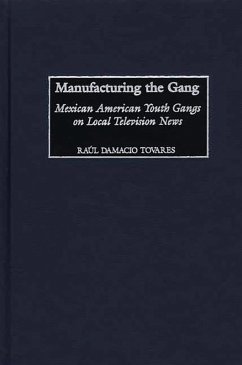Coverage of Mexican-American youth gangs has been a staple of local television news in the United States for decades, and its form and content have come to embody many journalistic cliches: the rising tide of violence, the spread of drug addiction, the alienated minority youth. But as this bold new study argues, these stories contain gross exaggerations that lead to the reinforcement of stereotypes about Mexican-American young people and the Mexican-American community in general. Indeed, the police and community leaders greatly influence the content of this coverage by deciding what information to make available to the news media, while reporters select certain sources and ignore others, thus slanting the story even further. As author Raul Tovares makes clear, the true story of Mexican-American youth is far more complex than local news would have its viewers believe. Cultural values, organizational structures, and economic systems all contribute to the production of this journalism, which itself has a direct and real impact on the lives of Mexican-American teenagers. Unlike other books on the subject of Mexican-American youth gangs, Tovares's work critiques the very assumptions on which ideas about such gangs are based, and brings much-needed attention to a timely and often misunderstood subject.
Hinweis: Dieser Artikel kann nur an eine deutsche Lieferadresse ausgeliefert werden.
Hinweis: Dieser Artikel kann nur an eine deutsche Lieferadresse ausgeliefert werden.









